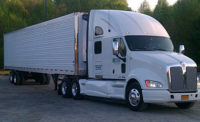By now, the shortage of incoming talent to the trucking and transportation industry has been well-documented. The American Trucking Association, Arlington, Va., is on record saying the industry is 35,000 drivers short, and this could grow to about 240,000 by 2020. What’s more, turnover is approximately 97%.
However, the talent shortage in the industry goes far beyond just the drivers. No doubt, the drivers literally drive the American economy, but the transportation industry as a whole encompasses fleet executives, managers, technicians, finance, analysts and more.
Attracting Millennials is key to not only the survival of the industry, but also its ability to thrive.
When I graduated from The University of Miami in 2010, I had several career options in finance. An internship with Fleet Advantage, Ft. Lauderdale, Fla., opened my eyes to not only the opportunities of working in the transportation industry, but also the excitement of the direction of the industry.
See, it’s not about what attracted me to transportation, but more about why I stayed. I believe this is the real message that needs to be communicated to other young professionals still deciding where to plant their professional roots.
Finance is flexible. Graduates will be working with numbers wherever they choose. But, here in transportation, the sophisticated data analytics coupled with finance that is now being utilized to help the industry make its business decisions is truly what made me want to stay and grow.
This isn’t about Millennials vs seasoned veterans of 25-plus years. I’m honored to work alongside some of the industry’s longest-tenured professionals. But, I’m also proud to know that the characteristics I bring as a Millennial have contributed to the success of the business.
Millennials grew up in a digital environment, with multi-tasking as a way of life. Our ability to research and think in a visual world has enabled me to add great value to the tried-and-true ways that many industry veterans have relied upon for years.
For example, fleet professionals are accustomed to spreadsheets. But, with the sophistication of today’s data, oftentimes a spreadsheet won’t tell the whole story. One of my contributions thus far has enabled the company to present data to customers in different formats outside of traditional spreadsheets, so that customers can see a bigger opportunity for asset management.
The more savings that we can identify in transportation, the greater the chance we can drive down costs for a consumer buying a gallon of milk, for example.
I’m very vocal about my views on the transportation and fleet industry.
I’m a strong advocate for this conversation to take place at the university level for other soon-to-be-grads still determining their career path. The more we can drive this message, the better we’ll be at attracting other bright, young minds into an industry that literally keeps America moving.



